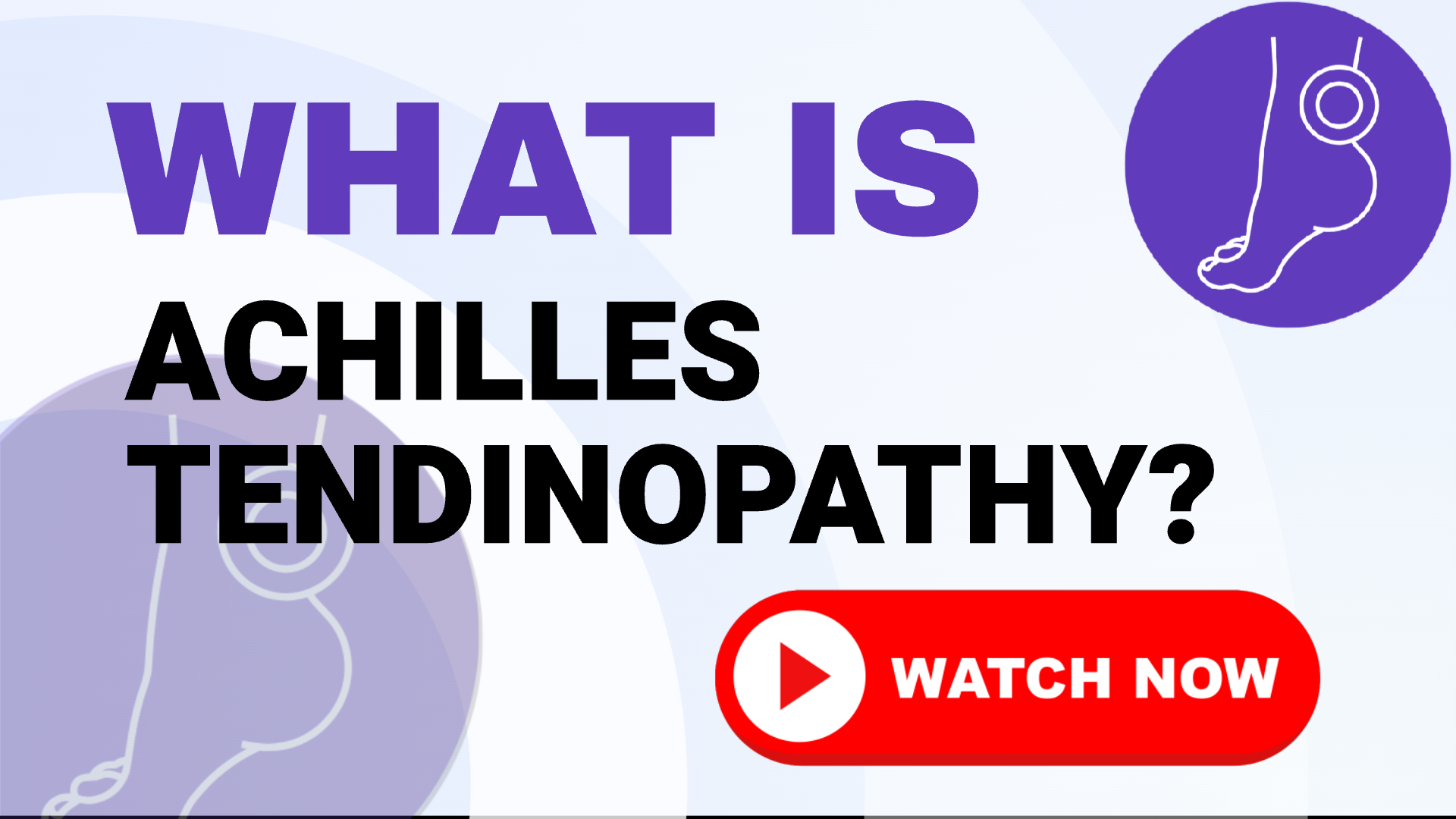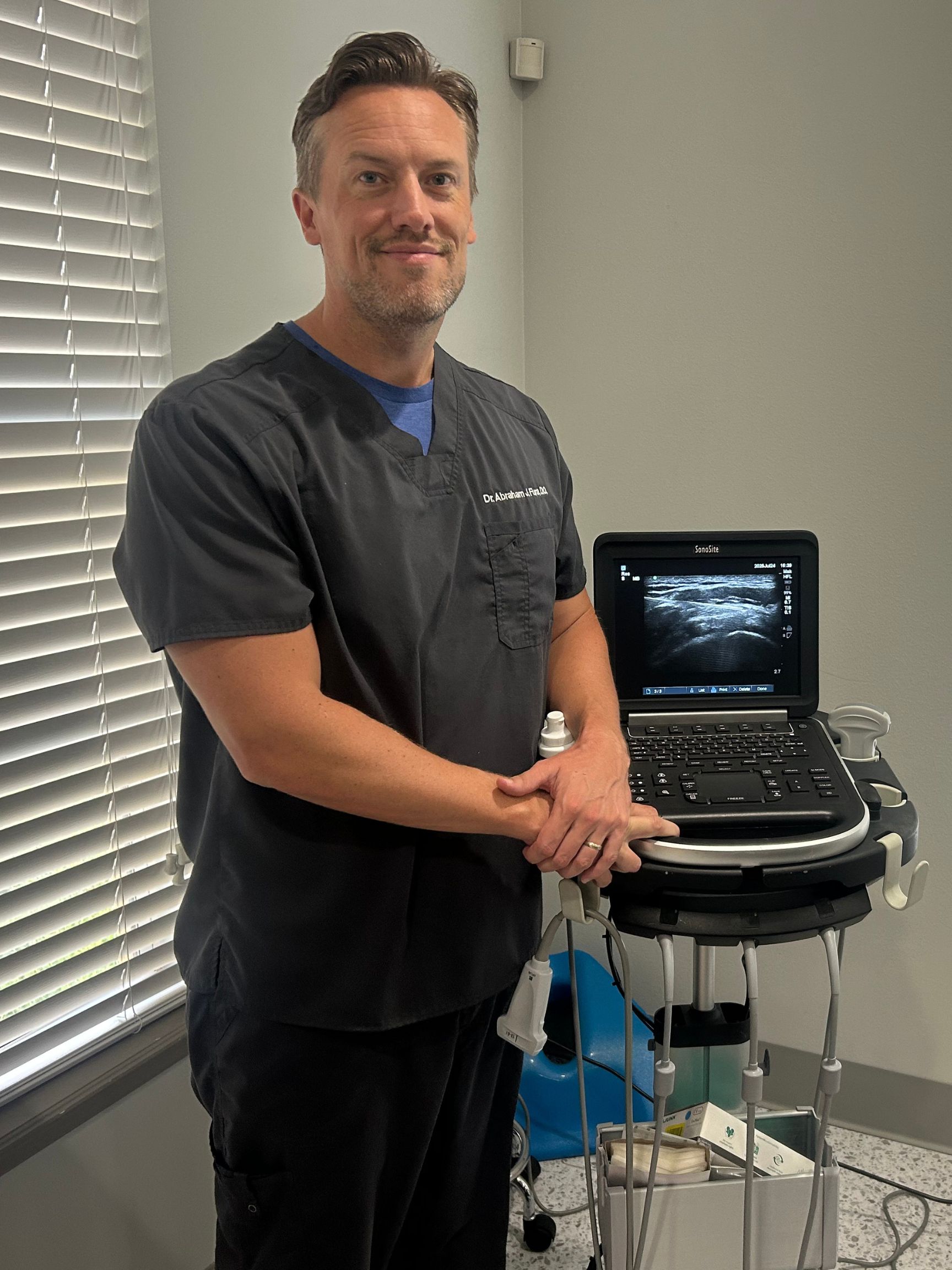
HEEL & ANKLE PAIN
Achilles tendinopathy is an overuse injury affecting the Achilles tendon, the large cord that connects your calf muscles to your heel bone. This condition causes pain, stiffness, and swelling at the back of the ankle. While short-term inflammation is known as tendonitis, most persistent cases involve **tendinosis**—a chronic degeneration of the tendon's fibers without significant inflammation. Understanding this distinction is crucial, as chronic tendinosis requires treatments aimed at stimulating tissue repair, not just resting. An accurate diagnosis is the key to a successful recovery.

CAUSES & RISK FACTORS
Achilles tendinopathy is an overuse injury caused by repetitive or intense strain on the tendon, which exceeds the body's ability to repair the tissue.
The most common cause, particularly in runners. Suddenly increasing the distance, speed, or frequency of your runs can overload the tendon.
Chronically tight or inflexible calf muscles place a constant high tension on the Achilles tendon, increasing the risk of injury during activity.
Running in old, worn-out shoes or having foot issues like flat feet can alter your biomechanics and place excessive stress on the Achilles.
In cases of insertional tendinopathy, a bone spur at the back of the heel can rub against the tendon, causing direct irritation and damage.

RECOGNIZING THE SIGNS
The primary symptom is pain and stiffness at the back of the ankle. The symptoms are often most severe in the morning and after periods of rest.
The hallmark symptom: severe pain and stiffness along the tendon with the first few steps out of bed, which typically eases with movement.
Pain and aching along the tendon during and after running or other physical activities.
The tendon itself is very tender when squeezed or pressed, either in its mid-portion or at its attachment point on the heel.
In chronic cases, you may feel a noticeable thickening or a hard nodule within the tendon, which is a sign of degenerative tendinosis.
There may be persistent swelling and thickening around the tendon that gets worse throughout the day or with activity.
Activities that require a strong push-off through the ankle, like climbing stairs or running uphill, can be particularly painful.
Morning heel pain and aching that limits your activity doesn't have to stop you. If you're struggling with persistent Achilles tendon pain, you may have chronic tendinosis that requires a healing-focused approach. An accurate diagnosis is the first step. Contact us to learn about advanced, non-surgical options to get you back to the activities you love.